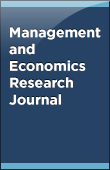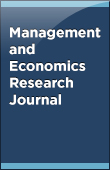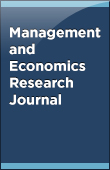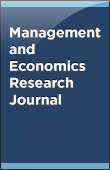


Short Description: A Peer-Reviewed, Hybrid Open-Access, Google Scholar-indexed, Cabells WHITE-LISTED journal, publishing scholarly articles in finance, marketing, human resources, and Information Technology, along with manuscripts documenting Economics research data and analysis.
E-ISSN: 2469-4339
P-ISSN:
Publisher: Synergy Global
Institute:
Address: Plot No. 15, Ground Floor, 3rd Cross, Balaji Nagar, Oulgaret
City: Puducherry
State: Puducherry
Country: India
ZIP: 605010
Phone:
Email: [email protected]

10.18639/MERJ.2025.9900117
Open Access
Dec 30, 2025
This study examines the impact of public debt, governance quality, and debt servicing on human development in West Africa, within the framework of the Dual Gap Theory. Using balanced panel data for 17 West African countries covering the period 2010–2024, the HDI is employed as a comprehensive measure of development outcomes. To account for endogeneity, heterogeneity, and distributional effects, the study applied a combination of QvM regression and system GMM. The empirical results reveal that government debt and debt service payments exerted a consistently negative and statistically significant effect on human development across the entire development distribution, with the strongest adverse impacts observed at median development levels. In contrast, governance quality emerges as the most influential positive determinant of human development, significantly enhancing the effectiveness of public resources and mitigating the adverse effects of debt. Gross fixed capital formation and trade openness also contribute positively to human development, underscoring the roles of investment and external sector integration in alleviating savings–investment and foreign exchange constraints. Diagnostic tests confirm the validity and robustness of the GMM estimates. Overall, the evidence suggests that public debt can undermine human development in West Africa when not supported by strong institutions and productive investment. The study has highlighted the central importance of governance reforms, prudent debt management, and strategic investment and trade policies in advancing sustainable human development across the region.

10.18639/MERJ.2025.9900116
Original Research Article
Nov 17, 2025
Cervical cancer remains one of the leading causes of cancer-related deaths among women in Brazil and worldwide, despite being largely preventable through regular and effective screening. This study, through a literature review, analyzes the socioeconomic barriers that hinder early screening, highlighting their impacts on both female mortality and public health costs. The analysis, based on a literature review of primary and secondary data, indicates that strengthening organized screening programs and HPV vaccination campaigns not only reduces mortality but also represents a cost-effective strategy given the expenses associated with treating advanced stages of the disease. The results highlight the importance of targeted public policies that consider regional and socioeconomic inequalities in access to prevention. The study contributes to the debate on prevention as an instrument for reducing inequalities and for economic sustainability in the health system.

10.18639/MERJ.2025.9900115
Original Research Article
Oct 20, 2025
This study investigates the impact of government subsidies on the expansion of vineyard surface areas and the production of alcoholic beverages in Kosovo. Over recent years, subsidies have played a pivotal role in revitalizing Kosovo’s viticulture and alcohol production sectors, leading to a notable increase in vineyard acreage and a subsequent rise in local wine and spirits’ output. By analyzing subsidy allocations, vineyard expansion data, and production figures, this research assesses the effectiveness of these financial incentives in fostering industry growth. The findings indicate that while subsidies have stimulated significant development in Kosovo's viticulture and alcohol production, they also pose challenges related to market dynamics, economic sustainability, and potential over-reliance on government support.